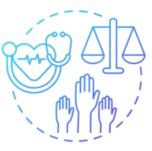Gemima St. Louis, Ph.D. (she/her/hers)
Associate Vice President for Workforce Initiatives & Specialty Training, Center for Workforce Development
Associate Professor, Clinical Psychology Department
William James College, One Wells Avenue, Newton, MA 02459
617-327-6777 Ext. 1241; williamjames.edu/workforce
Category: News
MACHW Newsletter Dec 2021
Welcome to our newsletter! We hope you enjoy it! Let us know your feedback at [email protected]. Thank you and Happy Holidays!
Funding Opportunity from the Massachusetts Department of Public Health DUE Jan 7th!
Grants of up to $50,000 are now available to 501(c)(3) community-based organizations and faith-based organizations (and other groups with a 501(c)(3) fiscal sponsor) who serve the communities impacted by COVID-19 in Massachusetts. The goal of COVID-19 Community Grants is to reduce COVID-19 infections, morbidity, and mortality among Black, Latinx, and other people of color in communities most impacted including Boston, Brockton, Chelsea, Everett, Fall River, Fitchburg, Framingham, Haverhill, Holyoke, Lawrence, Leominster, Lowell, Lynn, Malden, Methuen, New Bedford, Randolph, Revere, Salem, Saugus, Springfield, Worcester, and other cities and towns across the state and/or statewide. Grant applications are due January 7, 2022 at 11:59 PM. COVID-19 Community Grants will help organizations raise awareness in their communities about best practices that people can take to stop the spread, including messaging on vaccine safety and efficacy, ensuring physical distancing, mask wearing, and other harm-reduction practices. Go to HRiA.org/
Avanzando hacia la equidad en salud para la población hispana; Serie de seminarios virtuales, presentados en español, sobre modelos exitosos y oportunidades para una comunidad hispana más sana
 La Oficina de Asuntos Intergubernamentales y Externos de la Administración de Recursos y Servicios de Salud (HRSA IEA) lo invita a nuestra 2ª sesión de la serie de aprendizaje “Avanzando hacia la equidad en salud para la población hispana”. Esta sesión abordará en temas relacionados con la “Salud mental en la comunidad hispana y el antídoto para la fatiga por compasión”.
La Oficina de Asuntos Intergubernamentales y Externos de la Administración de Recursos y Servicios de Salud (HRSA IEA) lo invita a nuestra 2ª sesión de la serie de aprendizaje “Avanzando hacia la equidad en salud para la población hispana”. Esta sesión abordará en temas relacionados con la “Salud mental en la comunidad hispana y el antídoto para la fatiga por compasión”.
Día: miércoles, 15 de diciembre de 2021
Hora: 10:00am – 11:15am PST | 11:00am – 12:15pm MST | 12:00pm – 1:15pm CST | 1:00pm – 2:15pm EST
Objetivos de la sesión:
- Definir la salud mental y discutir su prevalencia e impacto en los resultados de salud dentro de la comunidad hispana
- Identificar las barreras que dificultan el acceso a los servicios de salud mental y las consideraciones culturales en el diagnóstico y tratamiento de la salud mental en los hispanos
- Describir las estrategias y recursos disponibles que apoyen el alcance de la salud emocional y promuevan intervenciones de salud mental entre la población hispana
- Discutir el impacto de la fatiga emocional en los proveedores de salud mental, así como las herramientas efectivas para su prevención y manejo
Distinguidos presentadores:
Brenda Lee Beauchamp, PsyD, Psicóloga clínica, Community Health Center, Inc.
Gladys Carrillo, LCSW, Directora de Servicios del Programa, Centro Nacional para la Salud de los Trabajadores Agrícolas
Ibis S. Carrión, PsyD, Director, Centro Nacional de Transferencia de Tecnología de Salud Mental Hispano y Latino
Moderadora: Veronica Roa, Analista de salud pública, HRSA IEA Región 1, Boston
Regístrese aquí.
El seminario web se transmitirá a través de Zoom en español con interpretación en vivo al inglés.
Para más información acerca de la sesión, por favor comuníquese con Veronica Roa en [email protected].
Para más información acerca de los programas y recursos de HRSA y la Oficina de Asuntos Intergubernamentales y Externos visite hrsa.gov y https://www.hrsa.gov/about/organization/offices/hrsa-iea.
Esta serie de aprendizaje está siendo coordinada por la Oficina de Asuntos Intergubernamentales y Externos de la Administración de Recursos y Servicios de Salud oficinas regionales de Boston (R1), Dallas (R6), Kansas City (R7), y Nueva York (R2)
Advancing Health Equity among the Hispanic Population; Learning series on best practices and opportunities for action
 The Health Resources and Services Administration’s, Office of Intergovernmental and External Affairs (HRSA IEA) invites you to our 2nd session in the Advancing Health Equity among the Hispanic Population Learning Series. This session will focus on Mental Health in the Hispanic Community and the Antidote for Compassion Fatigue.
The Health Resources and Services Administration’s, Office of Intergovernmental and External Affairs (HRSA IEA) invites you to our 2nd session in the Advancing Health Equity among the Hispanic Population Learning Series. This session will focus on Mental Health in the Hispanic Community and the Antidote for Compassion Fatigue.
Date: Wednesday, December 15, 2021
Time: 10:00am – 11:15am PST | 11:00am – 12:15pm MST | 12:00pm – 1:15pm CST | 1:00pm – 2:15pm EST
Session Objectives:
- Define mental health and explain its prevalence and impact on health outcomes within the Hispanic community
- Identify barriers to accessing mental health services and cultural considerations in diagnosing and treating mental health within the Hispanic community
- Describe strategies and resources available to support outreach to advance mental health interventions among the Hispanic population
- Discuss the impact of emotional fatigue on mental health providers and share tools for its prevention and management
Featured Speakers:
Brenda Lee Beauchamp, PsyD, Clinical Psychologist, Community Health Center, Inc.
Gladys Carrillo, LCSW, Director of Program Services, National Center for Farmworker Health
Ibis S. Carrión, PsyD, Director, National Hispanic and Latino Mental Health Technology Transfer Center
Moderator: Veronica Roa, Public Health Analyst, HRSA IEA Region 1 – Boston
Registration is available here.
HRSA IEA will broadcast the session in Spanish with live language interpretation to English. Prior to the session, registrants will receive a copy of the presentation in English with instructions for accessing the interpretation services and closed captioning.
For more information about the session, please contact Veronica Roa at [email protected].
For information about HRSA programs, resources, and HRSA IEA, please visit hrsa.gov and https://www.hrsa.gov/about/organization/offices/hrsa-iea.
This Learning Series is being coordinated by HRSA’s Offices of Intergovernmental and External Affairs in Region 1- Boston, Region 6- Dallas, Region 7- Kansas City, and Region 2- New York.
Evidence for Increasing Community Health Worker Wages
MACHW commissioned a CHW salary study with the University of Massachusetts’ Center for Social Policy. Here is a one-pager summarizing the results:
MACHW Salary Recommendations Updated 7.15.2020 (2)
Here is the full report:
Learn About Volunteer Opportunities at the Alzheimer’s Association!
Do You Have 30 Minutes? Learn About Volunteer Opportunities at the Alzheimer’s Association!

Give us 30 minutes, and we’ll give you 3 ways to make a difference!
The Alzheimer’s Association is looking for volunteers—from awareness to community education, fundraising, advocacy, and more.
Join us online on: Wednesday, November 17th at 8:30 AM to explore different volunteer roles that can work for you!
https://alz-org.zoom.us/webinar/register/WN_slED3ptDQoWCuf1sfdXl0A
|
|
Trauma-Informed Care Workshop Hosts 200!
 What a turnout!
What a turnout!
Presented on the New England Public Health Training Center platform on Nov. 4th, this MACHW interactive workshop supports CHWs as they strive to serve their clients during these challenging times. Moderated by MACHW’s very own Regional Consultant, Jamie Berberena, this workshop featured subject matter expert, Hythia Phifer (left), a mental health therapist and clinical consultant, who presented case studies on critical issues from across Massachusetts.
A trauma-informed approach to care is necessary to transform health care. Working on the frontlines, Community Health Workers (CHWs) are public health professionals who simultaneously build on the strengths and resilience of themselves and the communities they serve. CHWs provide supportive care to trauma survivors across various behavioral health spectrums; including grief, loss, substance use and mental health services.
CHWs learned the impact that traumatic experiences have on individuals, families, and communities and examined the parallels of caring for ourselves as we care for our clients. Goals included exploring the building of a community collective that is strength-based, and fosters safe and compassionate spaces that encourage resilience. Takeaways from the workshop included:
- Defining trauma in your own words
- Identifying triggers and how to recognize our own traumas
- Prevent and manage traumatic stress when it arises
This workshop is in such demand, MACHW is planning additional workshops on this topic in the near future! Visit our web site for upcoming dates at www.machw.org.
MACHW Celebrates CHW Day!
This year on June 15th, the Massachusetts Association of Community Health Workers (MACHW), in conjunction with Health Resources in Action (HRiA), asked employers of Community Health Workers to provide special recognition to their outreach staff. Over the last 16 months of the COVID-19 pandemic, the heroic efforts of CHWs made a real difference in helping people access testing, care and vaccines.
“Our Community Health Workers are integral to our unwavering commitment to equitable access to healthcare and COVID testing and vaccine during the pandemic,” said Public Health Commissioner Monica Bharel, MD, MPH. “Their connection to their communities and knowledge of the people they serve is a valuable asset to our efforts during the pandemic, particularly in our communities of color disproportionately burdened by the pandemic.”
MACHWA provided a ‘Guide to CHW Recognition,’ toolkit (see http://tiny.cc/kocxtz), complete with a certificate of appreciation and many ideas about how to celebrate during the week of June 15. Recognition for CHWs included a breakfast or luncheon, gift certificates to local businesses, and in some cases, paid time off!
“CHWs understand that connecting the people that have been left at the margins requires more than just giving a pamphlet with information. CHWs provide the necessary coaching, support, and information that is grounded in their intimate understanding about the circumstances -cultural, socio-economic-race-language – that prevent their clients from accessing and adhering to health care and social service resources,” said, Lissette Blondet, Executive Director of MACHW.
CHWs continue to serve as the backbone of many basic need, non-profit organizations. The goal of CHWs is to meet people where they are regardless of their circumstances and often work in Gateway communities to improve public health.
“When the pandemic hit,” Blondet said, “CHWs pivoted to educate and assist with all public health efforts to contain the virus, recognizing the stakes were at an all-time high.”
Sharon George, CCHW, Community Wellness Advocate Manager, Boston Medical Center, shares her experience as a frontline worker during the height of the pandemic:
“This has been exhausting for all of us with so much profound loss. We were just as scared about COVID 19, but throughout, our CHWs went into our communities like soldiers to the call of duty. When patients called saying they had no masks, no food, and were afraid to go to the supermarket, we delivered produce boxes and other essential items to our patients weekly. What kept us going? Behind the masks, you could see the smiles in our patient’s eyes. One day, after placing a box of food items at a patient’s front door, I began to walk toward my car. The patient called to me to pull my mask down so she could see me. She did the same, and we stood there for a while, just smiling at each other…”
A special day to honor CHWs originated in 1994, when ‘Outreach Educator Day’ was a large-scale celebration hosted by the Community Health Education Center (CHEC). Established by the Boston Public Health Commission, CHEC was the first competency-based training program for CHWs in the country.
According to the Massachusetts Department of Public Health (MDPH) there are about 3,000 community health workers in the state. These skilled public health professionals bring education and resources into the communities hardest hit by the pandemic. They speak the language and understand, often first- hand, the challenges that may prevent some neighbors from accessing the full continuum of health and social services.
MACHW is Growing!
Dear Colleagues and Friends:
We are excited to announce that we are recruiting for a new Manager of Career Advancement position to expand MACHW’s trainings and career advancement menus. The successful candidate would have a strong background designing curricula, ideally, geared toward adult learners. You must also be committed to the community health worker workforce and the mission, vision and values of MACHW:
Mission
Strengthen the professional identity of Community Health Workers, foster Community Health Workers leadership at policy tables and integrate Community Health Workers in all aspects of health care, public health, behavioral health and human service work. MACHW achieves its mission through education, research, policy development and advocacy.
Vision
We work for a health care system that fully embraces each human being, holistically addresses behavioral and physical health needs, eliminates the social determinants of health and ensures equal access to care for all our citizens. We work for a Commonwealth where Community Health Workers are a fully recognized, integrated, and sustained workforce of public health professionals, contributing our expertise in care teams, in programmatic decision-making and at policy tables. Our valued professional role is reflected in fair compensation, professional development opportunities and well-defined career ladders.
Values:
- Reflecting diversity
- Fostering trust
- Advocating for ourselves
- Modeling integrity
- Leading ethically
- Strengthening health equity
Please review the job description here: https://hria.org/jobs/manager-machw/
I encourage you to apply if you feel it would be the right fit for you, or feel free to share it with your colleagues. Many thanks and best wishes!

Lissette Blondet, Executive Director
Massachusetts Association of Community Health Workers (MACHW)
